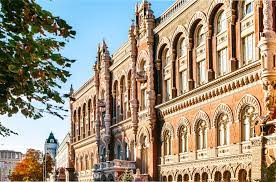
President of Ukraine Volodymyr Zelensky met in Kiev with American businessman and philanthropist, founder and CEO of real estate investment company Wasatch Group Dell Loy Hansen, who presented six new infrastructure projects for Ukraine.
In particular, as reported by the President’s press service, Loy Hansen presented to Zelensky the Phoenix initiative, which together with the state Ukrainian program “eVidnovlennya” restores damaged housing in Andriyivka, Moshchun and Makarov in Kyiv region.
It is noted that the first one hundred houses should be restored by December this year.
In addition, the businessman plans to build a full-cycle center for patients on the basis of the Kiev Center for Rehabilitation Medicine, as well as schools in ten communities in the Kiev region.
Zelensky and Hansen also discussed the projects already implemented by the businessman with the support of the Office of the President, Kyiv OVA and local communities.
Thus, the premises in Kolonshchyna and Sofiyska Borschagivka in Kyiv region have already been fully occupied. People who lost their homes as a result of Russian aggression live there. In addition, the first two phases of apartments for internally displaced persons in the village of Tarasovka have been put into operation. In Kolonshchyna another line of housing for older IDPs will be built.
The Head of State emphasized that Ukraine greatly appreciates people who have been helping our country since the first days of full-scale Russian aggression.
“Thank you for your support and for new projects for our people, for Ukrainian families. In particular, this is the construction of a new medical center, new schools for Ukrainian children and housing for displaced people,” the president said.

First Deputy Prime Minister – Minister of Economy Yulia Sviridenko, following a visit to Argentina and Chile this week, noted the presence of joint interest in investments and reported on the prospect of concluding bilateral free trade agreements.
“We know that there is already interest of companies from pharmaceutical, agro-sectors, processing industry, which want to deepen cooperation with Ukraine. The free trade agreement with Argentina, which we are currently working on, can also contribute to this. Cooperation with Argentina is reaching a qualitatively new level,” Sviridenko was quoted as saying in the press release of the Ministry of Economy on Thursday.
As First Deputy Prime Minister pointed out in social network X following a meeting with Argentine Economy Minister Luis Caputo, the countries have a lot in common: from economic structures to approaches to the organization of management. According to her, the parties agreed to hold a meeting of the Joint Ukrainian-Argentine intergovernmental commission on trade and economic cooperation in October this year. The last time it was held 18 years ago. In addition, the possibility of holding a Ukrainian-Argentine business forum is being considered, the Ministry said in a release.
“This country is the leader of the strategically important for us region of Latin America, so strengthening the presence of Ukraine on the agenda – a contribution both to the development of business ties and security projects” – summarized Sviridenko.
She recalled that Argentina has allocated 16 packages of humanitarian aid to Ukraine for $600 thousand, and at the moment up to half a million Ukrainians live in the country.
In addition, representatives of the Ministry of Economy met with the Argentine Chamber of Commerce and Services (CAC) and the Argentine-Ukrainian Chamber of Commerce and Industry (CAUCI) and invited business and government representatives to participate in the Ukraine Recovery Conference (URC-2024), which will be held June 11-12 in Berlin.
“(…) On the agenda – the First Global Peace Summit initiated by President Vladimir Zelensky, strengthening business ties, deepening cooperation in the defense sector, support for the Ukrainian energy system against the background of Russia’s systemic shelling of our energy capacities,” – accentuated First Deputy Prime Minister.
It is indicated that the Ukrainian side also invited the leaders of Argentina to join the Global Peace Summit and become a co-leader of the working group on one of the items of the Peace Formula.
After Argentina, the Ukrainian delegation, which also includes the Minister for Strategic Industries Oleksandr Kamyshyn, Deputy Minister of Economy Oleksiy Sobolev, Ukrainian Trade Representative Taras Kachka, Deputy Minister of Defense Dmytro Klymenkov, and representative of the Commissioner for Equal Rights and Freedoms of Rights of National Minorities of Political and Religious Views Mikhail Spasov, went to Chile.
“The first visit of a high-ranking Ukrainian delegation to Chile in 19 years,” Sviridenko emphasized on social network X. She also invited Chilean business and government representatives to the URC-2024 in Berlin, promising them very concrete projects from partners.
“We have a lot in common with Chile, especially in mining and critical materials. We hope to deepen cooperation in this area. We also discussed the issue of logistics. The next step of our cooperation is to deepen the dialog at the level of chambers of commerce and industry of our countries,” First Deputy Prime Minister said.
At a meeting with Chilean Economy Minister Niko Grau, Sviridenko said that both sides are interested in sharing experience in attracting investments, pointing out that there is already an example of a Ukrainian company that has invested in Chile.
“The areas where we see the greatest potential for growth are mining, especially in terms of critical materials, agribusiness and digitalization. Also, Chile has a rich experience in developing public-private partnerships and is ready to share it,” the First Deputy Prime Minister pointed out.
At a meeting with Chilean Foreign Minister Alberto Claveren, Sviridenko invited Chilean leaders to join the first Global Peace Summit, in particular, to lead the fourth point of the peace formula concerning the return of Ukrainian children illegally deported by Russia. She thanked Chilean President Gabriel Borich, who expressed his willingness to join the Summit.

The National Bank of Ukraine has decided to apply to PJSC Insurance Company Salamandra (Kiev) a measure of influence in the form of revocation of all licenses, according to the regulator’s website.
Also, in compliance with the requirements of the law “On Insurance”, in connection with the presence of the company’s obligations under insurance (reinsurance, coinsurance) contracts on May 14, 2024 decided to appoint a temporary administration in PJSC “IC “Salamandra” and removal of the governing bodies from the management of the company.
These decisions have been taken according to the results of planned inspection, conducted in October-December 2023, during which it was established the fact of realization by IC of risk activity, threatening the interests of creditors and insurers, namely formation of insurance reserves in insufficient amount (more than 10% of their sufficient amount, determined by the legislation of Ukraine) three times during the calendar year.
The decision on application of the measure of influence came into force on May 14, 2024.
After taking this decision, the temporary administrator should immediately begin to fulfill his duties, is noted in the message.
IC “Salamandra” (formerly – “DIM Insurance”) is part of the eponymous non-banking financial group, the ultimate beneficiary and owner of which is Yuri Yavtushenko.
IC Salamandra is a member of the Motor (Transport) Insurance Bureau of Ukraine.
Number of unemployed in Ukraine and job opportunities, 2023-2024
Source: Open4Business.com.ua and experts.news
Population forecast for Ukraine in 2030-2100
Source: Open4Business.com.ua and experts.news